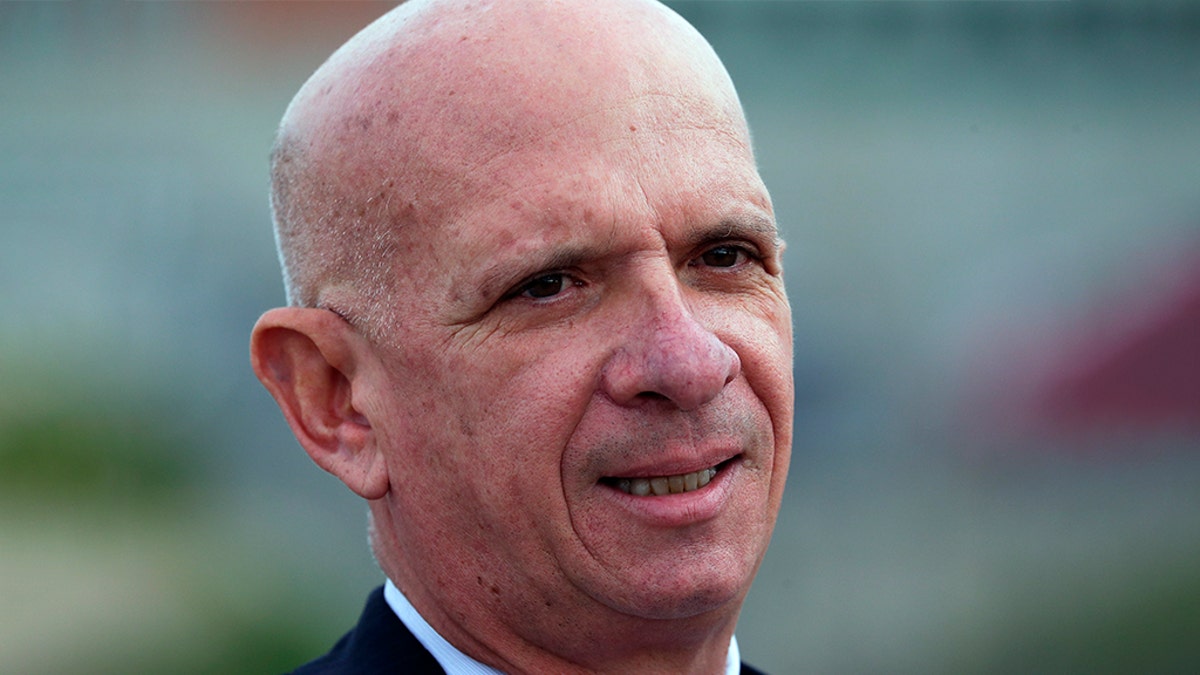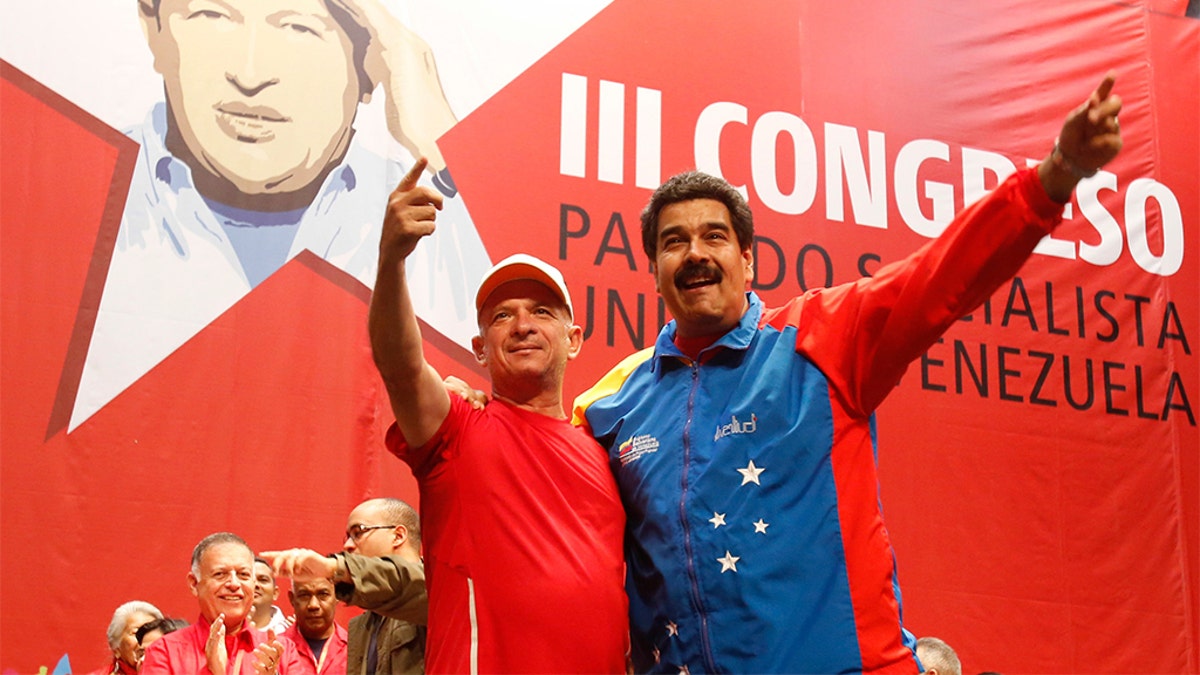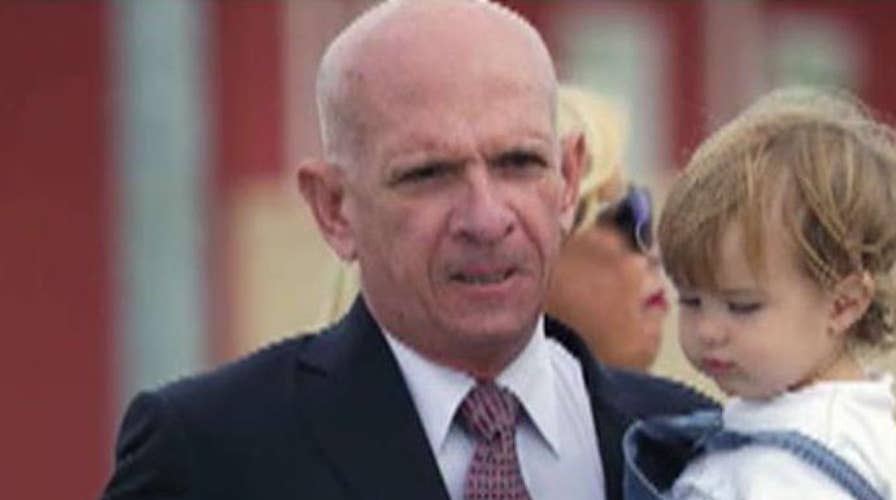Spanish authorities say Venezuelan spymaster wanted by US is missing
Venezuela's ex-military spy chief Hugo Carvajal disappears after a Spanish high court agreed to extradite him to the U.S.; Bryan Llenas reports.
Venezuela's former spy chief has disappeared in Spain after a high court agreed to extradite him to the United States where he faces federal drug-trafficking charges.
Hugo Carvajal, nicknamed "El Pollo," or "The Chicken," was the military-intelligence chief for Presidents Hugo Chavez and Nicholas Maduro, and some experts have said he could be a source of incriminating intelligence on Maduro and his regime.
Spain’s National Police told Fox News on Thursday they're continuing to search for Carvajal but his whereabouts remained unknown. Police reportedly had gone to Carvajal's home in Madrid to arrest him following the court's decision clearing his way for extradition to the United States, but when police arrived – he was gone.

Hugo Carvajal, seen this past September in Madrid, Spain, has vanished in that country, officials said. (AP Photo/Manu Fernandez, FILE)
"Carvajal's disappearance is a big embarrassment for Spain's government,” Special U.S. Representative for Venezuela Elliott Abrams told reporters at a public event in Washington, D.C., on Wednesday. "Theoretically, he was under house arrest."
Abrams added, "We hope that the Spanish police track him, arrest him and then extradite him to the United States."
Federal prosecutors in New York and Miami said Carvajal participated in multi-ton cocaine shipments to the U.S.
According to the New York indictment, Carvajal has been a member of Venezuela’s drug trafficking organization known as The Cartel of the Suns, run by high-ranking Venezuelan government officials who, experts say, have turned Venezuela into a mafia state. Prosecutors said Carvajal coordinated cocaine trafficking between Venezuela and the Revolutionary Armed Forces of Colombia [FARC], a terrorist organization in Colombia.
"Carvajal has information about the Venezuelan government’s involvement in narcotics, money laundering, terrorism and links with foreign military presence in Venezuela," former U.S. Ambassador to Venezuela Otto Reich told Fox News.
TRUMP ADMINISTRATION SANCTIONS 5 VENEZUELAN OFFICIALS
Experts have estimated that high-ranking officials have stolen tens of billions of dollars from Venezuela’s government coffers throughout the last two decades.

Venezuela's President Nicolas Maduro, right, embracing Hugo Carvajal at a Socialist party congress in Caracas, in July 2014. (REUTERS/Miraflores Palace/Handout, File)
"He knows where Maduro stashes his money. He knows about Maduro’s dealings with Russia and China," Reich added.
In written answers to questions by The Associated Press, Carvajal said he wanted to share secret information on state-backed drug trafficking and corruption.
"I'm not looking for any kind of amnesty from anybody, not from the U.S. nor from Venezuela," Carvajal wrote to the AP. "I'm looking for justice."
Carvajal left Venezuela for Spain this past March after he turned against Maduro and backed opposition leader Juan Guaidó. He was arrested in Spain in April at the request of U.S. officials and last Friday, Spain’s highest court overturned the lower court’s decision that initially blocked his extradition to the United States.
"I don't trust the justice system of the United States," Carvajal said in September. "I'm not going to have access to any kind of defense or to present evidence. So, everyone who could testify against me is either banned or has had their visa withdrawn in Venezuela."
A May 2019 report by Insight Crime identified more than 120 high-level Venezuelan officials who have engaged in criminal activity, often drug trafficking, including former Vice President Tareck El Aissami and current Minister of the Interior, Justice and Peace Nestor Luis Reverol Torres.
In 2017, two nephews of Venezuela’s first lady, Cilia Flores, were arrested and sentenced to 18 years in a U.S. federal prison for trafficking cocaine.
CLICK HERE TO GET THE FOX NEWS APP
In other words, the Americans were not the only ones who wanted to know where Carvajal went.
"I would be very surprised if Carvajal is still in Spain," Reich said. "He might be willing to make a deal with the United States because, if he goes back to Venezuela or if the Venezuelans capture him, his chances of staying alive are close to nil."
The Associated Press contributed to this report

